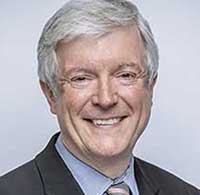- Home
- News
- Departments
- AHEAD OF THE CURVENavigating new trends in the global content business.
- DEVELOPMENT SLATEWhat the world’s producers, platforms and channels are developing.
- THOUGHT LEADERSHIPSmart thinking from the people running the content business.
- ANALYTICSDeep dive into the numbers and data.
- ANATOMY OF A DEALThe indispensable guide to deal structure and execution.
- COUNTRYFILEAn essential market-by-market guide to the worldwide content business.
- NEWS ANALYSISThe stories behind the news.
- NEXT BIG THINGSThe people, programmes and businesses that are changing the game.
- PERSPECTIVEViewpoints from the frontline of content.
- CONTENT STRATEGIESThe evolving content strategies of channels and digital platforms.
- THREE-YEAR PLANThe mechanics of forward thinking business strategy.
- FUNDAMENTALSProvides in-depth analysis of the content funding and finance sector worldwide.
- CONTENT TRENDSValuing, planning and managing content business commerce.
- BIG PICTUREInclusivity & diversity, sustainability & environment, business practice & operations, and content & storytelling.
- CEE100The CEE100 is an initiative that profiles 100 leading executives from channels, platforms and producers who are redefining the content business across Central and Eastern Europe.
- THE AI REPORTOngoing coverage of the threat and opportunity AI delivers to the global content business.
- Sections
- FORMATS LABC21FormatsLab is the leading formats resource in the international business.
- FACTUALC21Factual is the non-fiction section on C21Media.net which pulls together all our coverage of the genre in one dedicated area.
- DRAMAC21Drama keeps you up to date with what’s happening in scripted entertainment worldwide.
- KIDSFrom licensing to apps and good old fashioned television this is a one-stop-shop for all your kids content news.
- Mediabase
- Magazines
- Audio
- TV
- Screenings
- Events
- C21Media EventsAn overview of all C21Media events
- Content Americas21 – 23 January 2025
- Content Warsaw3 – 6 June 2024
- Content CanadaSeptember 2024
- Rose d’Or AwardsEntries open 1 July 2024
- Content London2 – 5 December 2024
- The C21 International Drama Series PitchOpen to new scripted drama and comedy drama series that are unseen in the international market
- The C21 International Format AwardsThe leading awards for the global format business, recognising creativity and excellence across a range of categories
- The C21 International Drama AwardsRecognising the best in global scripted creativity through one of the most highly regarded awards shows in the business.
- C21 Digital PitchThe most significant pitch initiative in the global business, allowing creators to connect the best new ideas with the global content community
- ClubC21Back on the beach at MIPCOM!
- Industry Events 2024Our directory of industry events
- Jobs
- Shop
- Home
- News
- Departments
- AHEAD OF THE CURVENavigating new trends in the global content business.
- DEVELOPMENT SLATEWhat the world’s producers, platforms and channels are developing.
- THOUGHT LEADERSHIPSmart thinking from the people running the content business.
- ANALYTICSDeep dive into the numbers and data.
- ANATOMY OF A DEALThe indispensable guide to deal structure and execution.
- COUNTRYFILEAn essential market-by-market guide to the worldwide content business.
- NEWS ANALYSISThe stories behind the news.
- NEXT BIG THINGSThe people, programmes and businesses that are changing the game.
- PERSPECTIVEViewpoints from the frontline of content.
- CONTENT STRATEGIESThe evolving content strategies of channels and digital platforms.
- THREE-YEAR PLANThe mechanics of forward thinking business strategy.
- FUNDAMENTALSProvides in-depth analysis of the content funding and finance sector worldwide.
- CONTENT TRENDSValuing, planning and managing content business commerce.
- BIG PICTUREInclusivity & diversity, sustainability & environment, business practice & operations, and content & storytelling.
- CEE100The CEE100 is an initiative that profiles 100 leading executives from channels, platforms and producers who are redefining the content business across Central and Eastern Europe.
- THE AI REPORTOngoing coverage of the threat and opportunity AI delivers to the global content business.
- Sections
- FORMATS LABC21FormatsLab is the leading formats resource in the international business.
- FACTUALC21Factual is the non-fiction section on C21Media.net which pulls together all our coverage of the genre in one dedicated area.
- DRAMAC21Drama keeps you up to date with what’s happening in scripted entertainment worldwide.
- KIDSFrom licensing to apps and good old fashioned television this is a one-stop-shop for all your kids content news.
- Mediabase
- Magazines
- Audio
- TV
- Screenings
- Events
- C21Media EventsAn overview of all C21Media events
- Content Americas21 – 23 January 2025
- Content Warsaw3 – 6 June 2024
- Content CanadaSeptember 2024
- Rose d’Or AwardsEntries open 1 July 2024
- Content London2 – 5 December 2024
- The C21 International Drama Series PitchOpen to new scripted drama and comedy drama series that are unseen in the international market
- The C21 International Format AwardsThe leading awards for the global format business, recognising creativity and excellence across a range of categories
- The C21 International Drama AwardsRecognising the best in global scripted creativity through one of the most highly regarded awards shows in the business.
- C21 Digital PitchThe most significant pitch initiative in the global business, allowing creators to connect the best new ideas with the global content community
- ClubC21Back on the beach at MIPCOM!
- Industry Events 2024Our directory of industry events
- Jobs
- Shop












.jpg)




























